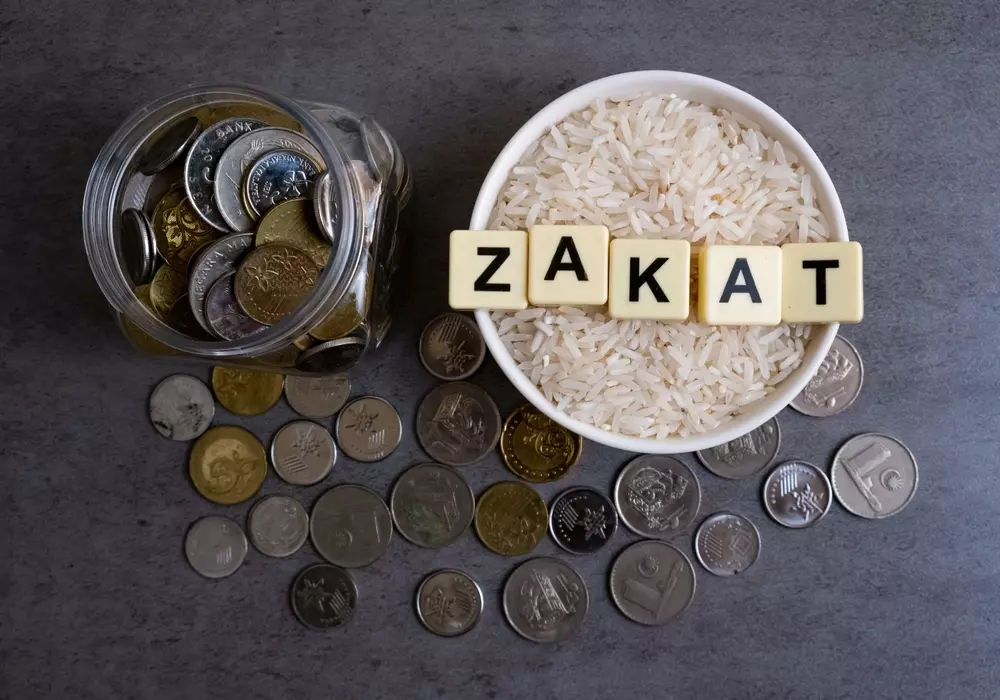Charity in Islam: Feeding Souls, Fostering Community
Islam guides Muslims in how they can display the values in their daily life that let them be a good person and please Allah (SWT). This means that acts of worship in Islam don’t only focus on devotion and remembrance of Allah (SWT), but also on helping others and building a strong sense of community. This is reflected in the teachings of the Quran and in Hadith to send a strong message of implementing these values to every Muslim. Having these values driving the faith lets believers work towards a life filled with empathy, generosity and social responsibility. One of the most beautiful parts of this faith is the focus on good deeds to help those in need. Giving to charity plays a huge role in Islam and is highly encouraged as one of the best ways to earn rewards from Allah (SWT).
Charity is one of the five pillars of Islam, known as Zakat- a mandatory form of charity that spreads a Muslim’s wealth to those in desperate need. There is also Sadaqah (voluntary charity) that is looked upon positively by Allah (SWT). Having various forms of giving shows just how important charity is in Islam, and there are many Islamic quotes on giving charity to reinforce this message. Discover quotes and hadith on charity to understand why the act of giving is so powerful for Muslims worldwide and encourage you to help those in need with nutritious meals.
Why is Charity Significant in Islam?
Charity, typically known as Sadaqah, is a commendable act in Islam that is highly encouraged for all believers to implement in their lives. It is a core principle of the faith and is highlighted many times through Islam and charity quotes both in the Quran and in Hadith. Every Muslim is encouraged to give to others freely and generously, especially to those less fortunate than themselves. This can be done through many avenues, such as donations of money to charities like Charity Meals, food to provide the poor with sustenance or even a kind word.
Charity is also seen as a vital part of Islam because the Prophet Muhammad (peace be upon him) emphasised how important the act of giving is in countless Hadith on charity. Muhammad (PBUH) was a model Muslim who is still looked up to today by believers. He put his devotion to Allah (SWT) first with everything he did, and cared for others, especially the less fortunate. He worked tirelessly to provide the poor with the basic necessities they needed to live a happy, healthy life. Today, Muslims are encouraged to follow in his footsteps and carry out his Sunnah- traditions of the Prophet (PBUH. In these charity Hadith, the Prophet Muhammad (PBUH) told believers that giving is one of the greatest ways to gain blessings, purify wealth and extinguish sins.
One of the most well-known Hadiths about charity states, “Charity does not decrease wealth.” This profound statement from the Prophet (PBUH) reflects the spiritual truth that what we give in charity is never lost. Instead, it returns to us in ways we may not immediately see. This Hadith on charity is a reminder that the act of giving is not just a loss. It is an investment in both our spiritual and material wellbeing.
What does the Quran Say About Charity?
There are many Islamic quotes about charity within the Quran that show the importance of giving in Islam. In the Quran, Allah (SWT) says: “example of those who spend their wealth in the way of Allah is like a seed [of grain] that sprouts into seven ears; in every ear, there are a hundred grains.” (Qur’an 2:261). This verse beautifully illustrates the exponential reward of giving, encouraging Muslims to be generous in their donations.
Hadith That Signify the Importance of Charity and Community
There are also multiple Hadith regarding charity that show Muslims how the Prophet Muhammad (PBUH) viewed giving to the poor. He taught others that the act of giving should be a part of the community and communal spirit. One Hadith states, “He is not a believer whose stomach is filled while the neighbour to his side goes hungry.” (Sahih Muslim). This powerful statement reminds us of the social responsibility we have towards our neighbours and community members. In Islam, making sure that those around us are not suffering from hunger is a vital part of faith.
Another Hadith emphasises the purifying power of charity: “Charity extinguishes sins as water extinguishes fire.” (Tirmidhi). This Hadith on giving charity not only highlights the benefits of charity for the giver but also shows believers its role in cleansing the soul from the burden of sins. Through charitable acts, a believer can seek forgiveness and draw closer to Allah (SWT).
This spirit of community is particularly important when it comes to providing charity meals for those who are facing hunger and malnutrition. Feeding the hungry is one of the most direct ways to fulfil the obligation of charity in Islam. It is an act that provides immediate relief to those who desperately need it and helps to create solidarity and unity within the community.
As we reflect on these teachings and the immense rewards of giving through Islamic quotes on charity, it is important to turn this reflection into action and implement giving into your life. If you give generously to those in need, you can make a massive difference to countless lives across the world. This is especially the case when you donate to Charity Meals because you will be providing nutritious meals to those who need it most, making your act of giving much more meaningful.
By donating to us, you are not just feeding a person for a day; you are participating in a cycle of blessings that benefits both the giver and the receiver. Your donation, no matter how small, can provide warmth, comfort and hope to those who might otherwise go without a meal.
When donating, consider the charity Hadith, “The best charity is to satisfy a hungry person.” (Bayhaqi). This shows just how important giving to those who cannot feed themselves or who don’t have access to food is. It is a simple yet extraordinary way to follow the Sunnah of the Prophet Muhammad (PBUH) and earn immense reward from Allah (SWT).
Islam and Charity are a Lifelong Commitment
The most important thing Muslims can take from Islamic quotes about charity is that it isn’t something a believer should only do once. It is an act that must be continuous throughout their lives to gain blessings and help those in desperate need. It is the best way to constantly purify wealth, seek forgiveness and connect closer to Allah (SWT). The more you give, the more blessed you are. This is shown in a hadith on giving charity when the Prophet (PBUH) said, “Wealth is not decreased by charity.” This Hadith is a reminder to Muslims that Allah (SWT), and His infinite mercy, returns what you give with something a lot better than money.
As Muslims, we are called to be generous in all aspects of life, particularly when it comes to supporting those in need. The rewards of charity are not just in the Hereafter but also in this world, where we see the impact of our giving in the smiles of those we help, the relief in their hearts and the joy of fulfilling our Islamic duty.
Living a life filled with charitable acts is a powerful way for Muslims to follow the teachings of Islam and have a happy lifetime. If you donate to Charity Meals, you instantly help us with our mission to eradicate hunger and provide nourishment to those who desperately need it. This simple act ensures that you fulfil a crucial aspect of your faith and gain rewards. As you donate, remember the words of the Prophet Muhammad (PBUH) in this charity Hadith “Charity does not decrease wealth.” What you give will return to you multiplied in ways that only Allah (SWT) can give to you.
It is best to try and embody the spirit of generosity that Islam focuses on as much as possible throughout your life. Let yourself be the reason that someone doesn’t go to bed hungry tonight. Donate now and be a part of the change that brings immense blessings to you and those you help in this life and the hereafter.



